Opinion
*A CASE FOR “AMOTEKUN CORPS” IN KOGI WEST*
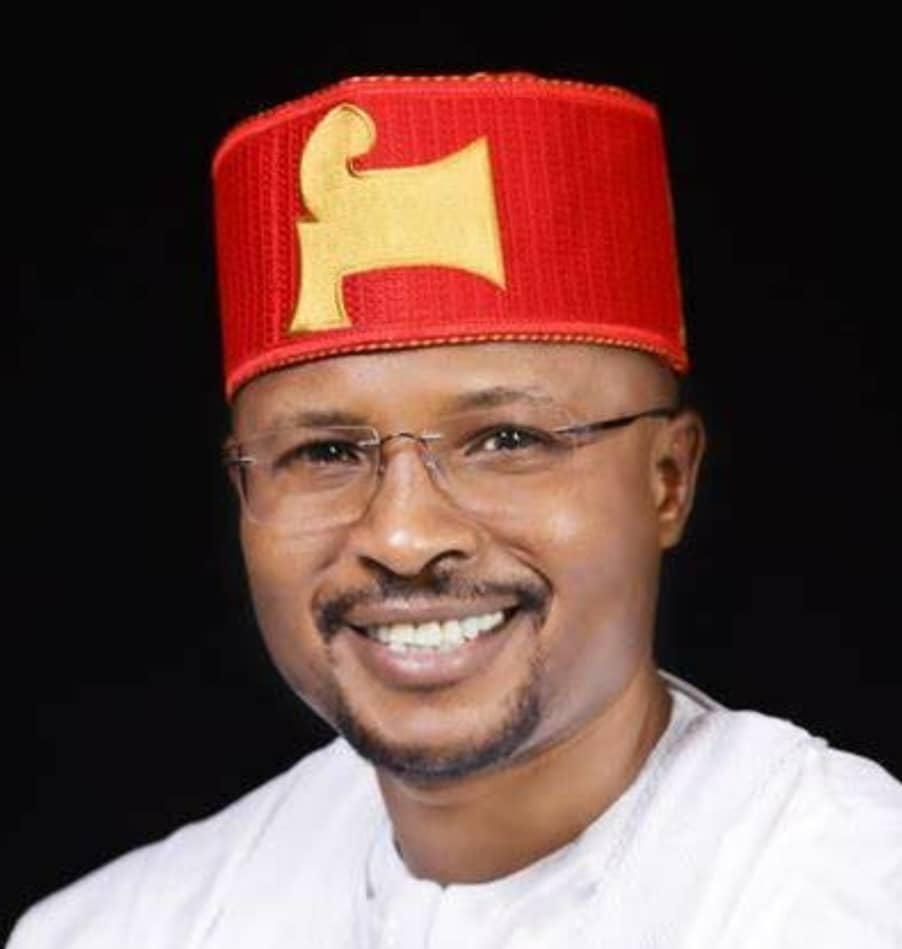
*By Tunde Olusunle*
It had festered for long. The wanton trespass, the emboldened criminality, the mindless murders, the reckless disruption of the rhythm of day-to-day activities of several communities in Nigeria’s South West. Formal and informal intelligence, fingered voyaging Fulani herdsmen as prime perpetrators of the crimson regime upon the Yoruba hemisphere. The pastoralists herded their cattle from the nation’s north, down south. They fed and fattened their livestock on farmlands owned by landowners, with unbelievable impunity. Aboriginal dissenters to such roughshod rides through their sweat-grown farms, were often sent to early graves. Luckier escapees, most times left with scars to last a lifetime. To confirm that they were on a mission to destroy, maim and murder, they moved around with deadly machetes and sophisticated weapons, beyond regular arms admissible for self protection, as they rampaged through the zone.
Beyond farmlands in the recesses of the Yoruba country, kidnappers, armed robbers and killers took over and terrorised roads and expressways in the South West, with uncommon boldness. They routinely caused gridlocks on roads like the all-important Sagamu-Ore-Benin highway, in the discharge of their criminal ventures. They would move from vehicle to vehicle dispossessing commuters of their belongings and shooting at random, killing the hapless. They abducted travellers and would subsequently request for ransoms from the families of their victims. At other times, they just murdered their victims like they did to Olufunke Olakunrin, daughter of the respected Yoruba leader, Reuben Fasoranti, on the same road under reference, in June 2019. Fortuitously, her killers were found, prosecuted and sentenced to death three years later.
Governors of the South West states, unanimously afflicted by this scourge, agreed in January 2020, to establish in their various states, a security outfit to be known as *Amotekun.* A Yoruba word, *Amotekun* means “cheetah.” The animal is a member of the global “big cat” family in the animal kingdom, which are apex predators. Creatures in this bracket which include lions, tigers, leopards, jaguars, are famous for stealth, speed and precision in preying on their targets. All six states in the region: Lagos, Ogun, Oyo, Osun, Ondo and Ekiti, signed up for this initiative, which was driven from the very top by the governors of each state. The South West states are famous for their historical collaboration on issues of the socioeconomic wellbeing of their states and people. The *Amotekun* concept is emplaced as a homegrown complement to the endeavours of existing intelligence and security organisations, in securing lives and property. It is not a rival, but a partner with preexisting agencies in the intelligence and security ecosystem. This typically consists of the military, the police, the Nigerian Security and Civil Defence Corps, (NSCDC) and the Department of State Services, (DSS).
Across the six South West states, *Amotekun* is charged primarily to protect persons, property and carry out emergency response services. The Corps systematically gathers, documents, evaluates and analyses data and information to convert to actionable intelligence for tactical, operational and strategic goals. It shares intelligence about crime in progress; suspicious activities, criminal suspects and other criminal activities. *Amotekun* collaborates with similar security agencies including but not limited to Lagos, Ogun, Oyo, Osun, Ondo and Ekiti states in deterring kidnapping, terrorism, disruption of livelihood, criminal damage to property, cultism, highway robbery and other criminal activities. It ensures that all persons travelling along highways, major roads, remote areas, hinterlands and forests are free to engage in their normal activities without fear or hindrance. *Amotekun* also assists the police in carrying out any other lawful activity aimed at maintaining law and order within their areas of jurisdiction. The operational ambit of the Corps could indeed be broader.
Since the enthronement of *Amotekun* in the six core Yoruba states five years ago, the organisation has complement the enterprise of statutory security outfits in notable measure. It has foiled robberies, disrupted kidnappings, stemmed open-ended trespass and destruction of farms by marauding herdsmen, and rescued potential victims and casualties of criminal schemes. As recently as Sunday February 15, 2025, *Amotekun* foiled a robbery on the notorious Sagamu- Odogbolu- Ijebu Ode, on the Lagos-Sagamu-Ore-Benin expressway. One of the suspects was neutralised, while a second one was arrested during a gun duel. The suspect arrested led *Amotekun* operatives to the hideout of the gang, where another suspect who had earlier fled during the gun duel, took refuge. Just last week, February 10, 2025, the Ondo State Command of the Corps rescued five victims of a kidnapping episode on the ever recurring Benin- Owo road. Such is the serially documented efficacy of *Amotekun* in its various theatres of operation.
Worthy of note is the fact that the topmost echelons of *Amotekun* leadership across the South West, are very senior retired military and police officers, not below the ranks of retired Brigadier-General or Assistant Inspector General of Police, (AIG). The Oyo State outfit for instance is headed by Brigadier-General Kunle Togun, while the Ogun State formation is led by Brigadier-General Alade Adedigba. The Chairman of the Osun State variant is AIG Wale Abbas, while Brigadier-General Olu Adewa leads the Ekiti State *Amotekun* command. This underscores the seriousness with which the outfit is organised and deployed. Our reservoir of ex-servicemen in our communities, local hunters, vigilantes and youths can constitute the core of the operatives.
Recent criminal incidents in the the Okun country in Kogi State and Kogi West senatorial district at large, compels a proposition for the establishment of an *Amotekun* detachment in the zone. Like its kith and kin in core Western Nigeria, Okunland has been the butt of several violations by a broad canvas of criminals. Daredevil armed robbers have invaded Okun communities, targeting banks and murdering regular folk. Kidnappers perennially lay siege on lonely stretches of the dilapidated road networks in Okunland, killing innocents and taking hostages in kidnap- for- ransom incidents. On May 2, 2021, Solomon Adegbayo a Commissioner in the Kogi State Pensions Board was killed in the same incident in which the Chairman of Yagba West local government area at the time, Pius Kolawole, was kidnapped.
Last December, Alaba Ope, the Councillor representing Odo-Ape Ward in Kabba-Bunu local government area, and eight others, were kidnapped in a midnight operation by brigands. An Abuja-bound commuter bus from Lagos, carrying 18 passengers, was also in December 2024, intercepted around Obajana in Okunland and all the occupants abducted. The kidnappers placed a N100 million ransom on their victims. Should we mention the travails of subsistence farmers in Okunland and Kogi West who in several instances have literally been barred from their farmlands in their homelands by scurrilous criminal elements masquerading as herders? This has been the collective experience of the genetically peace-loving people of Kogi West District.
The people of the geopolitical span under interrogation, have not exactly thrown up their hands in despair in their worrying circumstances. Hunters and vigilantes despite their constrained training and arming, are usually on the front foot combing the forests and thickets. Following attacks on three commercial banks located in Egbe and Odo-Ere in Yagba West just before Christmas in 2021, for instance, Okun hunters and vigilantes entered the forests and indeed arrested a few of the culprits who missed their ways after the dastardly operation. Indeed, early June 2024, Okun vigilantes and hunters joined the army, police, DSS and NSCDC, in raiding the camps of kidnappers in the forest of Yagba West, in an operation which lasted for several days. Yagba West shares boundaries with Kwara, Niger and Ekiti states which makes it specifically vulnerable to criminal incursions.
Several other communities and councils in Kogi West, share abutments with neighbouring states which makes them vulnerable. Disturbed by the unabating recurrence of multifaceted criminality in Okunland which dominates six of the seven local government areas in Kogi West, Sunday Karimi, the Senator representing the District, singularly undertook the construction of a *Forward Operating Base,* (FOB) in Egbe, last year. The fully furnished mini-barracks which is capable of hosting two units of military personnel, was commissioned last October. It has since been taken over and operationalised by the Nigerian Army. To underscore his concurrence with Karimi’s bold initiative, the Member Representing Yagba federal constituency in the House of Representatives, Leke Joseph Abejide, participated at the inauguration and handing over event.
Given the dynamism of crime and criminality, containment and mitigation strategies must also of necessity be proactive. As an essential component of the global Yoruba country, as a people and senatorial district which share boundaries with two geopolitical subscribers to the *Amotekun* concept, notably Ondo and Ekiti states, there is no better time to adapt the prototype in Kogi West and in Okunland. The template may be available on the internet or can be obtained from one of the present six participating states. While it is true that whole states, and not sections or parts of states are subscribers to the philosophy elsewhere, there must be a way to adapt the template for Kogi West. As a people, we know where our shoes presently pinch us.
At the recent maiden annual lecture of the National Institute for Security Studies, (NISS), the Director-General of the Department of State Services, (DSS), Oluwatosin Ajayi, noted that “communities should be empowered to serve as the first line of defence in tackling criminality.” According to him, they must lead the way “before the intervention of the police, the military and other security agencies.” Ajayi noted that “some level of armament must be allowed at the level of communities, so they can serve as the first layer of defence.” He cited examples from *Tafawa Balewa* and *Bogoro communities* in Bauchi State where he previously served, as places where the antics of marauders were successfully repelled. He indeed alluded to his community back home in Ogun State as one which he is guiding to stand up for itself in the face of adversity. This gifts us a perfect window to explore, for the setting up of a *Kogi West/Okunland Amotekun Corps.*
The people of Kogi West trust their Senator, Sunday Karimi, to pick up the gauntlet and rally his colleagues, namely Leke Abejide, Idris Salman and Danladi Suleiman Aguye, representing Yagba, Kabba-Bunu/Ijumu and Lokoja/Kotonkarfe, respectively, to articulate this proposal.
Representatives of state constituencies in Kogi West in the Kogi State House of Assembly, (KGHA), and Chairmen of local government areas in the district, must of necessity be an integral part of this concept. Very happily, the federal government now directly credits the accounts of local government authorities with their dues which allows room for targeted fiscal flexibility. Budgets have to be drawn up to accommodate the needs and remuneration of *Amotekun* operatives. Elsewhere, they are properly kitted with uniforms, footwears and bulletproof vests. They are well armed and enabled with ample quantities of ammunition, and are duly remunerated and provided with serviceable patrol and operational vehicles. They undergo drills to keep in shape and ready. Let’s imagine just how better improved the security situation in Kogi West will be if 100 *Amotekun* corps members are added to the existing security capacity of each LGA. This comes to a total of 700 additional crime fighters in the zone. Criminals will definitely have a rethink before daring their potential Waterloo.
*Tunde Olusunle, PhD, Fellow of the Association of Nigerian Authors, (FANA), is an Adjunct Professor of Creative Writing at the University of Abuja*
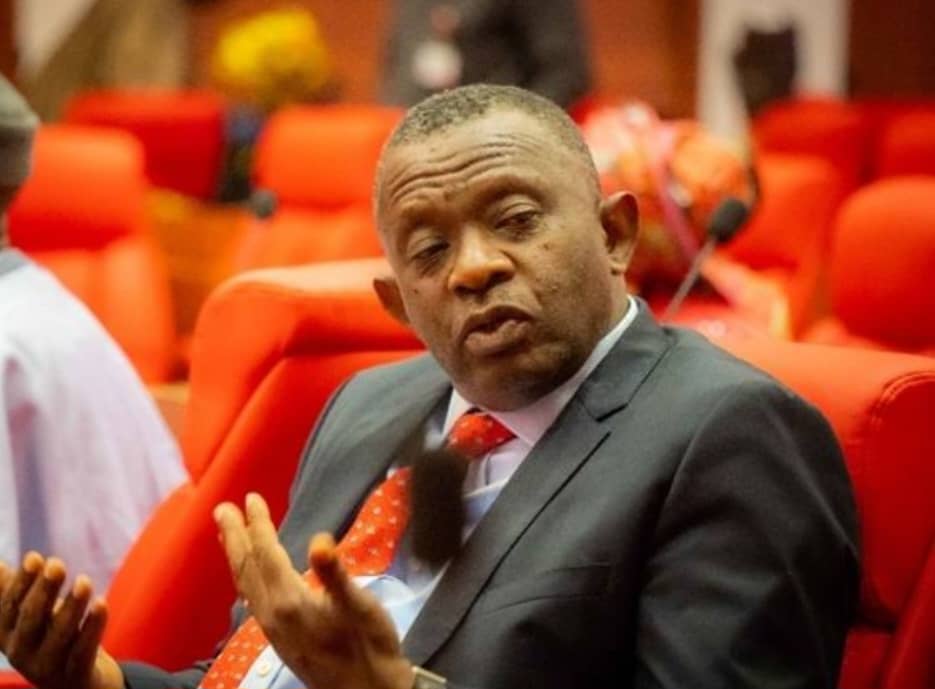

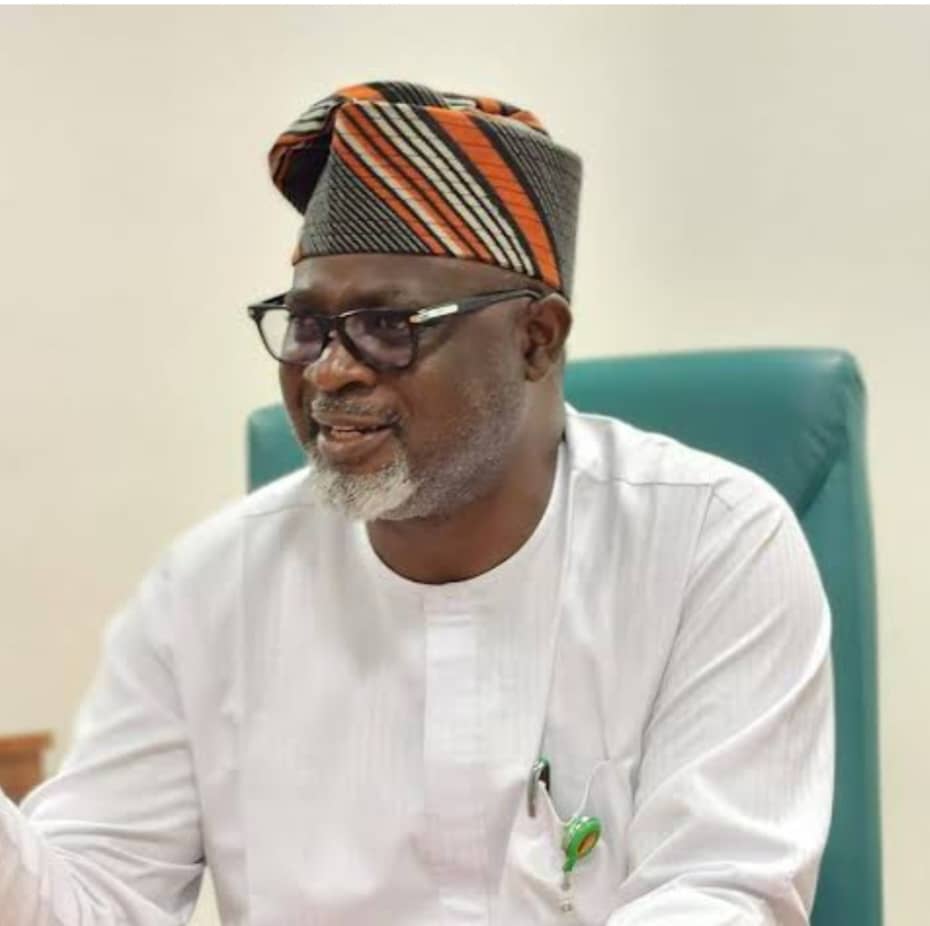
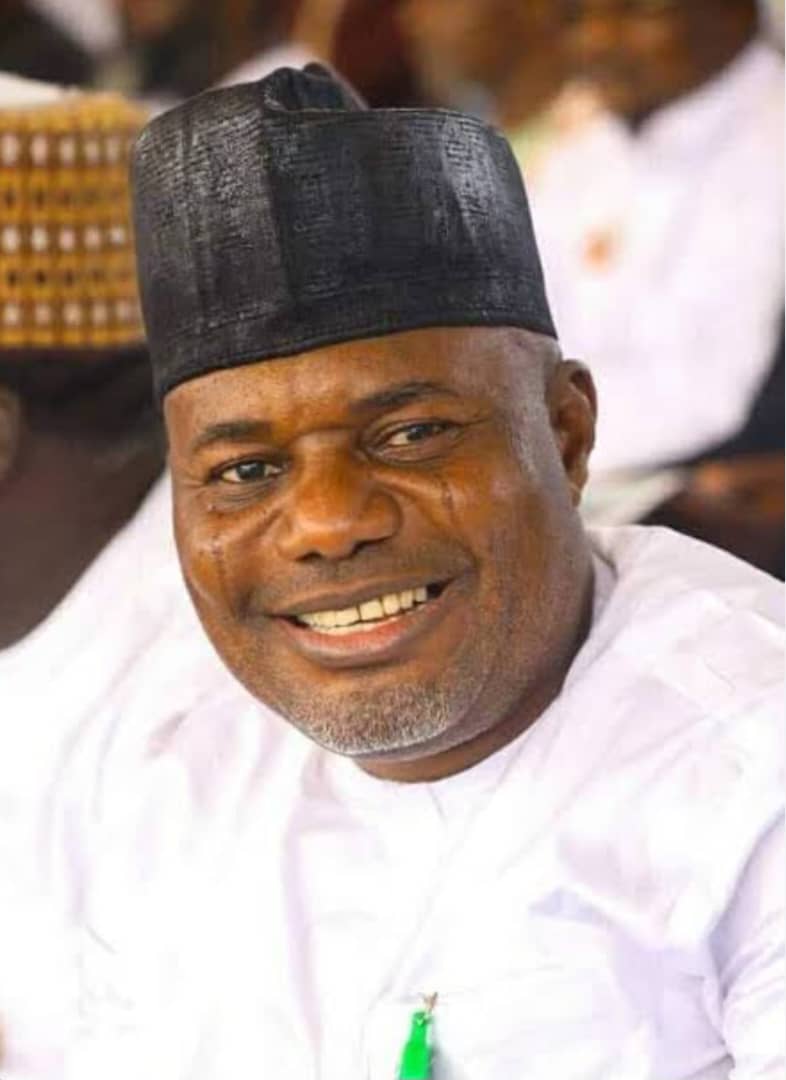
Opinion
OF ABUJA INVESTMENT COMPANY, TAMUNO, WIKE, AND TINUBU’S “RENEWED HOPE” AGENDA
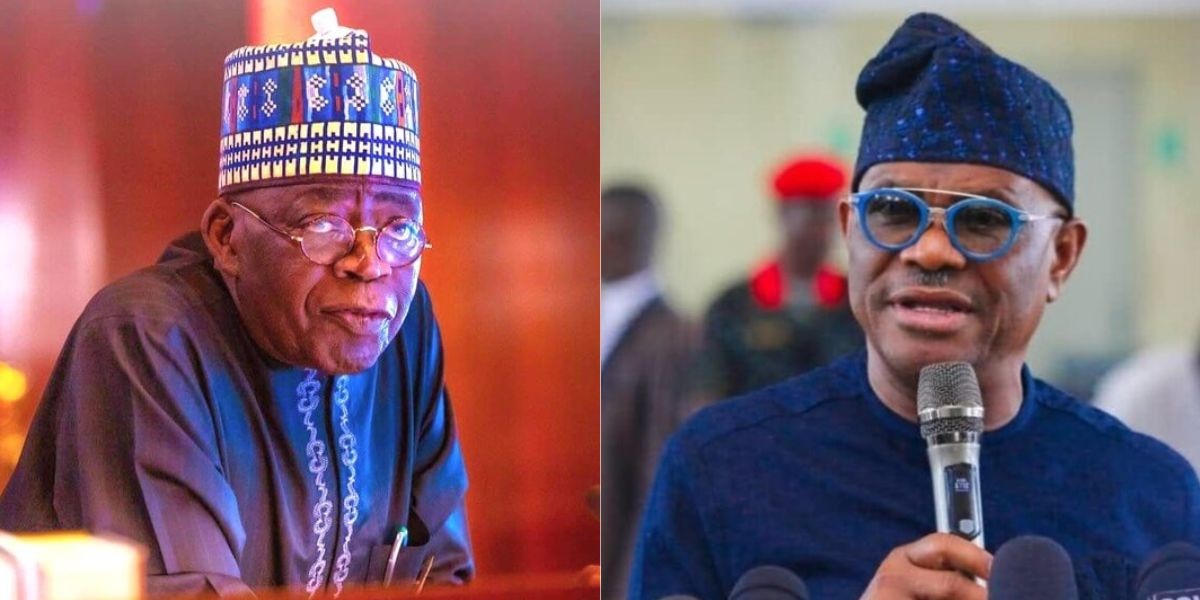
BY BOLAJI AFOLABI
Established in 1994 by the military administration of late General Sani Abacha, the Abuja Investments Company Limited, (AICL) is positioned as a government-owned investment enterprise charged with the responsibility to drive economic development in the federal capital territory. Its primary goal is to promote strategic investment and boost realistic economic growth of the FCT through different platforms and various approaches. Key functions of the AICL include Business Development; Investment and Development; Public-Private Partnership; Facility Management; and Infrastructure Development. The AICL has several subsidiaries and associates including Abuja Property Development Company, (APDC); Abuja Markets Management Limited, (AMML); Abuja Urban Mass Transport Company, (AUMTCO); Abuja Technology Village Free Zone; Abuja Film Village International Limited; PowerNoth/AICL Equipment Leasing Company. Others include Aso Savings and Loans PLC; Abuja Power Company Limited; Abuja Leasing Company; and Abuja Downtown Mall.
From 1994 till the exit of the military from national governance in 1999, the AICL recorded few achievements. During this period, the AUMTCO, and Aso Savings and Loans were established. With the dawn of democratic government in 1999, it was expected that the FCT, being an emerging federal capital will benefit hugely from the activities of the AICL. However, nothing much was achieved between 1999 and 2003. Somehow, Mallam Nasir El-Rufai, who administered the FCT from July 2003 to July 2007, was able to change the tide. Under his watch, the AICL came alive, recorded some measure of visibility and attracted positive public perception. Sadly, the AICL took a downward slide thereafter. None of the past ministers; Aliyu Modibbo Umar, Adamu Aliero, Bala Mohammed, and Muhammed Musa Bello provided the necessary political will and support for the AICL to maximally attain full potential. Indeed, it got worse between 2015 and May 2023 that many residents forgot that the company was still existing.
Many critical stakeholders were worried about the depth of neglect, static state, and institutional damage that the AICL was subjected to. Patterned after similar agencies in some developing nations, where measurable strides are achieved, the reverse happened with the AICL, that it became recurring causes of worries, and regrets to many people. Alhaji Aminu Mohammed, a former staff member of FCTA said, “it was shameful that the company remained largely dormant for many years.” Corroborating, Mr. Gilbert Gyang, an Abuja based investment expert declared, “the AICL, especially during the last administration was arguably comatose. It merely existed on paper, there was no visible investment initiative geared towards economic growth in the federal capital.” For Ms. Winifred Anosike, former banker, and development consultant, “it’s painful that the company was practically inactive for years. It was not only affecting economic growth in Abuja but impacted negatively on people and firms with result-driven initiatives who desired to contribute actively to the development of the capital city.”
With the emergence and subsequent inauguration of President Bola Tinubu on May 29, 2023, key players in the investment sector were hopeful that, the AICL may breathe again. Many hinged their thoughts on Tinubu’s background and experiences in accounting, financing, investment, governance, and leadership. Though with caveats; the choice of who minister’s FCT will be pivotal. Convinced that the AICL should be the “engine room” of economic growth and development of the capital city, many hoped that Tinubu will deploy the appropriate person to oversee the strategic ministry. Some stakeholders concluded that a wrong choice may consign the AICL into the “wilderness of inactivity” and likely extinction. Somehow, key players in the investment sector, at different fora and platforms were upbeat that Tinubu will pick the right person, who they hope will lead the way towards enabling the AICL to get back its mojo.
In August 2023, the deployment of Barrister Nyesom Ezenwo Wike as the Minister of the FCT; the 8th since Nigeria’s return to democratic government elicited public endorsement. Tinubu’s choice was largely celebrated by many stakeholders, as it renewed optimism about the prospects of AICL reviving its activities. Cognisant of Wike’s legendary achievements, as Rivers state Governor where he embarked on massive infrastructure development and more, turning the “Treasure Base” to the central investment hub in the South South zone, and emerging as second to Lagos state, many were confident that “light will come” to the AICL. A similar spate of enthusiasm and expectations was prevalent in and around the AICL. Many of the staff members also shared the positions.
The atmosphere at the Garki District offices of AICL on April 7, 2024 was ecstatic when news filtered in that Wike had appointed Dr. Maureen Tamuno as the Group Managing Director. A few hours later, it turned to frenzy after goggle checks were done by some staff members to have glimpses of her profile. Impressed, and satisfied with her multi-disciplinary academic background, and multi-faceted careers, her appointment was described as well-thought, and well-deserving. The unanimity of opinion was that, being a round peg in a round hole, the AICL will leverage on her far-reaching experiences and exposures as a former lawmaker, seasoned diplomat, public administrator, and boardroom strategist.
Aware and ready for the challenges ahead, many staff members were visibly excited when Tamuno assumed office the following day. Thus emerging as the first female chief executive of the AICL, since its 30 years of existence. Described as an accomplished technocrat with identifiable achievements in leadership, strategy, diplomacy, administration, and consulting, Tamuno, in her maiden speech confirmed the postulations of staff members. She emphasized her, “commitment to open-door policy to all staff, urging everyone to operate at the highest standard of transparency, confidentiality, accountability, and ethical business practices.” Continuing, she assured staff members that her, “strategic approach and consumer-centric philosophy are expected to propel the AICL to new heights of success.”
From reports, challenged by the enormity of the task ahead, conscious of the hugely untapped potential of the AICL, buoyed by the political support of Wike, and encouraged by the passion of the staff members, Tamuno literally hit the ground running. As a globally-recognized business development, management, and investment professional, she approached her assignment with iron-cast resolve, and the precision of a surgeon. First off, she embarked on critical reviews and overview of the AICL trajectory from inception; identified germane issues; evolved strategies for re-positioning the company; enunciated quick-wins, short-term, medium-term, and long-term measures for development, and some others. All these were geared towards delivering (or surpassing) the Ministerial mandate, and also ensuring that the AICL contributes its quota to Tinubu’s “Renewed Hope” agenda.
Indeed, it is imperative to note that the AICL, under the superintendent of Tamuno has literally drawn water out of rocks; which before now was largely unthinkable. That the soft-spoken and resourceful amazon; and her team were able to make noticeable impact within just one year, speaks volumes about her ingenuity, and indomitable spirit. In a broad sense, these achievements include encouraging economic diversification; expanding investment opportunities; exploring business and investment exchanges; deepening subsidiaries collaboration; and fostering diplomatic relationships.
In practical terms, the AICL, through some landmark initiatives has provided the platform for the promotion of trade and commerce, as well as economic growth and sustainable investment in the FCT. It is imperative to recall some of these laudable and trail-blazing projects. A few days back, the solar powered Farmers Market in Utako District and Kugbo International Market were commissioned by the FCT Minister of State, Dr. Mariya Mahmud. Speaking at the epoch making events, Mahmud eulogized Tamuno for completing the first-of-its-kind projects which, “would provide employment opportunities for a wide range of people in line with the “Renewed Hope” agenda.” While explaining that the projects are under the Public Private Partnership initiative of the AICL, Tamuno promised that, “under the Build Operate and Transfer (BOT) arrangement, the government will combine with the private sector to create profitable and sustainable public infrastructure. We identified Small and Medium Enterprises, (SMEs) as the backbone of any prosperous economy, because they create jobs that drive sustainable economic growth.” To underscore AICL’s commitment towards encouraging the informal sector, shops were gifted to some hardworking traders from all the six Area Councils of the FCT.
In October 2024, the AICL organized a two-day Abuja Business and Investment Summit with the theme: “Optimizing Investments Through Partnership.” The event, geared towards promoting investment opportunities in the FCT, was attended by major stakeholders in finance, investment, manufacturing, and other sectors. Participants opened new alliances, partnerships, and collaborations for new opportunities and innovations that will lead to micro and macro development. Tamuno, who by the way was one-time Nigeria’s Ambassador to Jamaica is leveraging on her diplomatic credentials and network to re-position the AICL. She is regularly engaging, and exploring investment opportunities with foreign countries through their diplomats in Nigeria. Through her participation at the maiden Nigeria-Kazakhstan Business Conference which was held in Abuja, in 2024, there are advanced plans for the establishment of city-to-city flights between both countries, as well as collaborations in agriculture, education, technology, logistics, and more.
Agreed, the journey is somewhat far but the AICL, under the new chief executive has shown unbridled commitment, and unflinching fervor in elevating the status, and relevance of the company towards engendering meaningful growth and development of the FCT. Tamuno has shown relentless drive and boundless energies towards justifying the confidence reposed in her by Wike. Posting an encouraging report-card in one year deserves commendations and encouragement. Mr. Olugbenga Okanlawon, an Abuja based public affairs analyst declared that, “she has shown that she is the right person for the job. Considering what the AICL has achieved in one year, it is clear that more grounds will be covered in terms of growth and development.” A frequent caller to the AICL who preferred anonymity said, “the GMD has brought a new lease of life to the place, and everybody has imbibed her can-do-it spirit with much pride, and belief.”
* BOLAJI AFOLABI, a Development Communications specialist was with the Office of Public Affairs, The Presidency, Abuja.
Opinion
Dismantling the false Narrative of a “Coup” in Rivers State
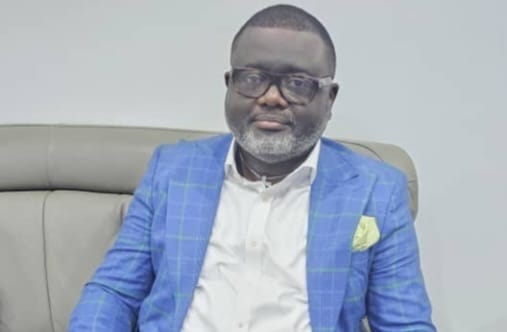
By Jones Onyereri
The assertions that President Tinubu’s intervention in Rivers State constitutes an unconstitutional power grab or a “military coup in civilian disguise” fundamentally misrepresent the legal, political, and security realities that necessitated federal action. Far from being a partisan maneuver, the declaration of a state of emergency and subsequent measures were lawful, proportionate, and grounded in the imperative to prevent a total collapse of governance and public order. Below is a thorough rebuttal to the allegations:
The Nigerian Constitution explicitly empowers the President to declare a state of emergency under Section 305 when there is a clear threat to public safety or a breakdown of governance. The escalation of pipeline vandalism by militants—which crippled economic activity, endangered lives, and exacerbated environmental degradation—coupled with the Supreme Court’s February 18 judgment highlighting governance failures in Rivers State, provided incontrovertible justification for federal intervention. The claim that “no emergency existed” ignores the state government’s demonstrable inaction in addressing these threats, which risked spiraling into wider violence. Emergency powers are, by design, temporary and exceptional, aimed at restoring stability, not undermining democracy.
The appointment of Admiral Ibok-Ete Ibas as Sole Administrator aligns with constitutional provisions for federal intervention during crises. Section 11 of the Constitution permits the National Assembly to legislate for a state in extraordinary circumstances, and the President’s action enjoys implicit legislative backing as a stopgap to avert anarchy. Admiral Ibas, a retired military officer with no overt political ties, was selected for his administrative expertise, not as a proxy for any faction. His mandate is strictly limited to stabilizing the state, facilitating the return to democratic governance, and ensuring the security forces can operate without partisan interference. To equate this with a “military coup” is hyperbolic and disregards the transparent, legal framework guiding his role.
Critics allege defiance of Supreme Court orders regarding state funds, but this misinterprets the interplay between judicial mandates and emergency executive authority. While the Court initially restricted financial flows to Rivers State due to governance disputes, the escalation of the crisis necessitated federal release of funds under the “doctrine of necessity” to sustain critical services like healthcare, education, and infrastructure. The Constitution prioritizes the security and welfare of citizens (Section 14(2)(b)), and the President’s duty to uphold this principle supersedes rigid adherence to procedural norms during emergencies.
The Sole Administrator’s actions, including the formulation of regulations and restructuring of local government administrations, operate within the bounds of his provisional mandate. These regulations require approval by the Federal Executive Council (FEC), ensuring oversight and accountability. The replacement of local government officials was not a “power grab” but a necessary step to dismantle networks complicit in revenue diversion or inefficiency. The Supreme Court’s insistence on democratically elected local governments remains sacrosanct, but interim appointments during emergencies are globally recognized mechanisms to restore functionality before elections can be organized.
Claims that the Administrator has overstepped by preparing a budget or appointing a Secretary to the State Government (SSG) ignore the practical realities of governance. In the absence of a functional State Assembly, provisional budgets based on existing frameworks ensure continuity of public services. Similarly, the appointment of an SSG—a routine administrative role—falls within the Administrator’s authority to maintain bureaucratic operations. These measures are neither permanent nor unconstitutional; they are transitional tools to prevent total institutional paralysis.
The narrative that this intervention serves Minister Wike’s political interests is speculative and distracts from its stated purpose. Restructuring boards and commissions, including the Rivers State Electoral Commission, aims to depoliticize institutions vital to free and fair elections. The focus on “Wike loyalists” assumes nefarious intent without evidence, whereas the Administrator’s appointments could equally reflect efforts to engage experienced personnel familiar with the state’s administrative landscape. The assertion that federal actions target Governor Fubara’s allies conflates routine accountability with persecution; in crises, restructuring is inevitable to eliminate inefficiency or bias.
Regarding the House of Assembly reconstruction, federal involvement ensures the project adheres to timelines and standards, avoiding further delays that could destabilize legislative functions. The Governor’s progress, while commendable, does not negate the need for independent oversight in a volatile environment.
President Tinubu’s intervention is neither indefinite nor authoritarian. Emergency measures will lapse once security is restored, and democratic structures are reinstated. The National Assembly retains the authority to review and curtail these actions under Section 11, ensuring checks and balances. To frame this as a “2027 political takeover” is a cynical distortion of a lawful, necessary intervention to prevent Rivers State from descending into chaos.
In conclusion, the allegations of a “civilian coup” or unconstitutional power grab disregard the constitutional safeguards and urgent pragmatic considerations guiding federal actions. The President’s duty to protect lives and livelihoods in Rivers State transcends political expediency. While vigilance against overreach is prudent, dismissing all stabilization efforts as partisan machinations undermines the legitimate pursuit of peace and order. The people of Rivers State deserve functional governance, not perpetual crisis—and federal intervention, however imperfect, is a constitutional means to that end.
Rt Hon Sir Jones Onyereri PhD, KSP, FCIPAN
April 12, 2025
Opinion
Tik Tok gets another lifeline from being banned

By Sonny Aragba-Akpore
On Saturday April 5,United States President Donald Trump announced an extension of 75 days for Tik Tok on his Truth Social platform, saying the TikTok deal “requires more work to ensure all necessary approvals are signed.”
He said he is signing an executive order “to keep TikTok up and running for an additional 75 days.”
With this development, the 170 million subscribers connected to Tik Tok in the United States of America (USA) have another 75 days to meander on the App unhindered.
This new deadline which an Executive Order covers follows the expiration of the first 75 days Order on April 5.
Tik Tok owners,ByteDance of China, have these 75 days to divest completely from the American operations or risk being sent to the dark or being banned.
China faces a 54% aggregate tariff on goods imported into the US, and has retaliated with 34% in counter tariffs.
Reports suggest several potential buyers for TikTok have cropped up in recent days.
Amazon has put in a last-minute offer to the White House to acquire the platform, according to Agency reports though the firm has declined comment.
Several other potential buyers include billionaire Frank McCourt, together with Canadian businessman Kevin O’Leary. Alexis Ohanian, who co-founded Reddit, has said he has joined Mr McCourt’s bid.
Computing giant Microsoft, private equity giant Blackstone, venture capital firm Andreessen Horowitz and search engine Perplexity AI are also reportedly in the running for a stake.
Trump has said his administration was in touch with four separate groups interested in a potential TikTok deal, though he has not named them.
Vice-President JD Vance is spearheading the administration’s effort to find a buyer.
The president has also suggested the US could offer a deal where China agrees to approve a TikTok sale in exchange for relief from US tariffs on Chinese imports.
“We hope to continue working in Good Faith with China, who I understand are not very happy about our Reciprocal Tariffs,” Trump wrote on Truth Social.
He added that the trade levies are “the most powerful economic tool, and very important to our national security”.
Trump granted TikTok a second 75-day extension to comply with a law that requires the hugely popular video app to either sell its US operation or face a ban in the country.
“We do not want TikTok to ‘go dark’,” Trump wrote on Truth Social. “We look forward to working with TikTok and China to close the Deal.” The platform is currently owned by Chinese company ByteDance.
Trump’s first extension was granted after he took office in January and this expired on Saturday,April 5,2025.
In a statement on Friday, April 4,ByteDance said it had been in discussion with the Trump administration, but “an agreement has not been executed”.
“There are key matters to be resolved. Any agreement will be subject to approval under Chinese law,” a spokesperson said.
Former US President Joe Biden’s administration had argued that TikTok could be used by China as a tool for spying and political manipulation.
Congress passed a bipartisan law last year that gave ByteDance six months to sell its controlling stake in TikTok or see the app blocked in the US.
Opponents of a ban have cited freedom of speech as a reason for keeping the platform open.
But the new extension comes as the Trump administration tries to broker a deal to bring the social media platform under American ownership, and keep the popular app running in the US.
“The Deal requires more work to ensure all necessary approvals are signed,” Trump wrote on his Truth Social platform on Friday.
The social media platform, which says it has more than 170 million users in the US, must close in the US under a law passed by Congress – unless a buyer is found.
Agency reports that a TikTok deal was nearly finalised on Wednesday last week but fell apart after Trump on the same day announced sweeping global tariffs, including on China.
Agency reports further explained that ByteDance representatives contacted the White House to inform them China would no longer approve the deal unless negotiations on the tariffs could take place .
Unnamed sources said the plan had been for Trump to sign an order initiating a 120-day period for closing the deal, allowing time to finish paperwork and secure financing.
The agreement had won approval from existing investors, new investors, ByteDance, and the US government, but China backed out once Trump imposed the global import taxes.
The Chinese embassy in Washington DC said in a statement that it “opposed practices that violate the basic principles of the market economy”.
A federal law signed by former President Joe Biden in 2024 effectively banned TikTok if it remained under Chinese ownership. The initial law called for the app to permanently go offline on Jan. 20, but Trump signed an executive order extending the deadline by 75 days.
The US TikTok ban, which received overwhelming bipartisan support, required TikTok’s parent, ByteDance, to divest the short-form video app over US concerns that it posed a national security threat.
US officials have long argued that the Chinese government, which is designated as a US adversary, could gain access to Americans’ TikTok user data for nefarious purposes or use the platform to spread propaganda.
The US law banning TikTok forces web service providers to stop hosting the app and requires Apple and Google to pull it from their app stores.
TikTok took a challenge to the law all the way to the US Supreme Court, arguing that it infringed on the company’s First Amendment and other constitutional rights. A group of TikTok users made similar claims in a companion case, claiming they, too, had been deprived of constitutional protections.
But the high court ruled in favor of the government, reasoning that TikTok, as a foreign entity, wasn’t entitled to constitutional protections and that national security concerns outweighed the government’s restriction on TikTok use. The court also said the law was limited in its infringement on free speech because social media users could access and post on other social media platforms.
The Act to ban Tik Tok if it did not divest its operations in the USA was signed with broad support from Republicans and Democrats.
Although some lawmakers had urged President Joe Biden to grant a reprieve to prevent TikTok from going dark in the U.S. as soon as Jan. 19,2025 ,the TikTok ban had already resulted in a number of “TikTok refugees” who moved to another Chinese app, RedNote, short for “Little Red Book.” RedNote became the most downloaded app in Apple’s app store in the U.S. the week leading up to the Supreme Court’s decision. If this trend continues, this “migration” to a similarly situated app might defeat the purpose of the Act. The TikTok ban illustrates how U.S. regulatory actions are designed to mitigate potential threats posed by foreign adversaries, significantly increasing compliance requirements for cross-border investments and technology operations. Particularly, the Supreme Court’s decision upholding the TikTok ban underlines the trend of intensifying scrutiny of foreign-controlled entities that collect or handle sensitive data in the U.S.
Although it’s not clear whether there will be a reprieve for Tik Tok,there are strong indications that the Trump administration needs more time to understand the situation and perhaps to be the one to implement the ban.
TikTok has 1,925 billion users globally, with 170 million monthly active users in the United States.
The average daily time spent on TikTok has more than doubled from 27 minutes in 2019 to 58 minutes in 2024.
The most popular categories on TikTok are Entertainment, Dance, and Pranks, with billions of views each.
Top influencers on TikTok include Charli D’Amelio, Khabane Lame, and Addison Rae, each with tens of millions of followers.
TikTok’s user base has grown exponentially from 133 million in 2018 to over 1,925 billion in 2024.
Daily active users on TikTok have skyrocketed into the millions, reflecting the platform’s ability to engage users on a daily basis.
In the year 2020, Trump issued an executive order citing TikTok’s ability to capture vast amounts of user data as a significant national security threat. The order sought to prohibit certain transactions involving ByteDance but was blocked by federal courts.
Subsequently, the Trump Administration directed ByteDance to divest its U.S. TikTok operations and user data, but these efforts were stalled as negotiations with the president Joe Biden Administration aimed at a nondivestiture agreement failed to resolve the government’s concerns.
ByteDance’s proposed national security agreement was ultimately deemed insufficient to mitigate risks posed by Chinese control. Against this backdrop, Congress enacted the sale-or-ban law, further targeting TikTok and similar applications.
> According to the Supreme Court’s finding, TikTok’s ultimate parent company, ByteDance, is a privately held company that has operations in China. ByteDance owns TikTok’s proprietary algorithm, which is developed and maintained in China. The company is subject to Chinese laws that require it to assist or cooperate with the Chinese government’s intelligence work and to ensure that the Chinese government has the power to access and control private data that the company holds.
Underscored in the decision, TikTok’s extensive data collection from more than 170 million U.S. users could be exploited for surveillance, public influence campaigns or other harmful purposes that threaten national security. The Act and the holding reflect Congress’ and the Supreme Court’s efforts to address growing concerns over foreign adversary-controlled applications through the access to sensitive data of U.S. nationals and the resulting potential risks to U.S. national security.
-

 News21 hours ago
News21 hours agoFire engulfs presidential villa
-

 News16 hours ago
News16 hours agoTinubu’s ugly past shores up as US Judge orders DEA, FBI to release files
-

 News21 hours ago
News21 hours agoBig waste! Man with PhD in Maths works as cleaner, messenger in Nigerian University
-

 News4 hours ago
News4 hours agoAutonomy: 774 LGs challenge FG, states in court Tuesday
-

 Sports15 hours ago
Sports15 hours agoJust in: Newcastle pummel Man United 4-1
-

 Education21 hours ago
Education21 hours agoJAMB releases 2025 mock UTME results
-

 News15 hours ago
News15 hours ago2027: Atiku’s Opposition Front is a mission impossible-Wike declares
-

 Economy20 hours ago
Economy20 hours agoSEE Current Black Market Dollar (USD) To Naira (NGN) Exchange Rate

















